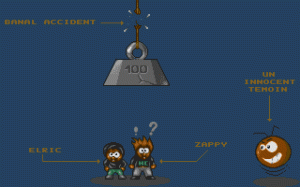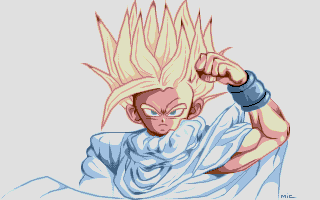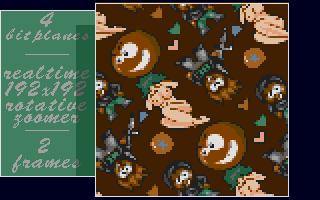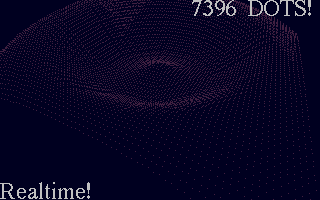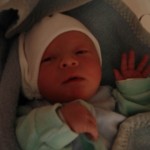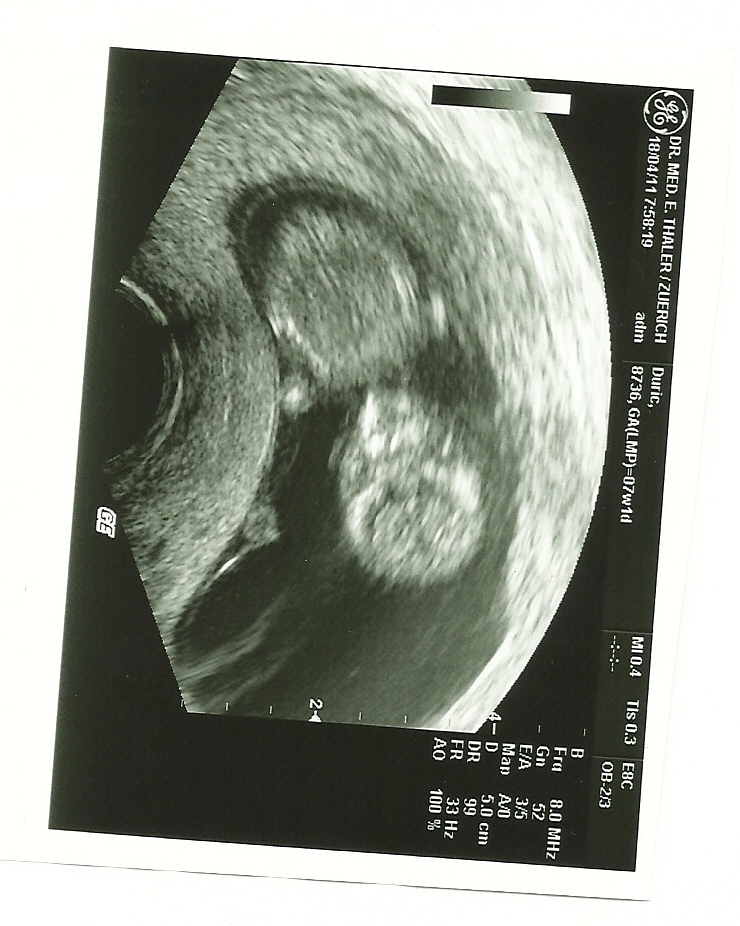The early days (9/10) - Japtro
Sunday, May 20th, 2012The snippets of code used in Rising Force had not been created expressly for the CSC2. They were taken from a much more ambitious project started earlier, codenamed Japtro. At the time there was a plethora of demos with strange, creative labels. Traditionally it all started with intros and demos. But soon enough some hybrids started to appear: trackmos, dentros, etc, I even saw a “pantro” once. And thus, there was no reason for us not to create our own label. This is how the Japanese Dentro, or “Japtro” was born. At that time, Elric and I were in our Manga phase, and sure enough we wanted to share this with our beloved audience! After the Rising Force experience, we went back to code like never before, hungry for success. We had tasted a dirty drug called fame.
The new challenge, the new battlefield was 3D. The new opponents, as in a classic DragonBall scenario, were far more powerful than the previous ones: Overlanders, Equinox. The Overlanders, the very people who had motivated us years before, in the Salon de la Micro 1990. The old masters. As for Equinox, represented by Keops, they were the gifted challengers we had to monitor very closely. Needless to say, it was not going to be easy.
But the Rising Force episode had changed everything. We felt ready to compete with anyone. The Japtro project accurately captured this fighting spirit: four disks crammed to the rafters with code and graphics, going in every direction, trampling underfoot the so-called stars of the day (too bad for Keops!) without a shred of scruples. It was rough, naked, stripped, with an almost total lack of design, delivering some raw code to those who wanted it. Design? Why? Sorry, this is not what we do. We did not care a bit about design, and we did not mind pointing out that fact, even if we had to insist rather tediously. We felt like hardcore coders. In fact we felt like the Pure Metal Coders from the Amiga. And this is thus not a coincidence if the Japtro intro, where the camera moves in a 3D labyrinth that is eventually revealed to be a Japtro logo, is in fact inspired from a PMC demo.
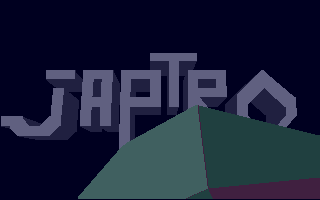
The birth of Japtro was an amazing experience. Elric came to my place a week before the coding-party in which we wanted to present the demo. We already had a lot of code and manga drawings coming from a PC, we just had to put everything together and wrap things up. For a day or two, nothing happened. We did nothing. The day was spent watching demos from other people, mentally preparing ourselves for what would follow. And then we reached the moment when we knew we had to start coding. That was it, now. There was no way to wait any longer. Duly noted.
Intensive code for 3 or 4 days. Special moments where emulation is at its peak, where reality fades, giving way to the creative process that captures all the energy of the author. During these days, what usually never happens did in fact happen: everything clicked. We did not sleep, we barely ate, we just coded. And everything worked the first time. No bugs, no crashes, accurate and well thought out code that practically writes itself. At one point a major source file got accidentally deleted. Usually this is a catastrophe. But this time, we just recoded the whole thing in a few hours, and more efficiently to boot. That was just unheard of. Magic moments when man and machine become one, moments of perfect symbiosis where things Just Work, smoothly and effortlessly. We were on auto-pilot, on a suicide run. We stayed in the flow the whole time, and managed to complete three disks in three days. I still do not know how. I have never experienced such an intense coding session afterwards. At the end of the week we had four disks shock full of stuff for an epic demo that blew away everything we had done before. We were exhausted, washed out, but proud. We had enough ammo in there to kill any opponent without compunction. High-speed 3D, spectacular fullscreens, a whole bag of new tricks, funny things involving Keops (funny for us at least!), a ton of fullscreen pictures, in short: an orgy of code, music and graphs for a beast of a demo. Four disks at once? Only the Phaleon demo matched that. But dozens of groups contributed to that one, while we were alone! Two coders to fill up four disks. I think nobody ever repeated that feat in the years that followed.
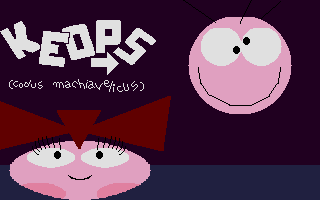
The demo was presented at the Saturn Party II, and it was a success. Still, I was not yet completely satisfied.
